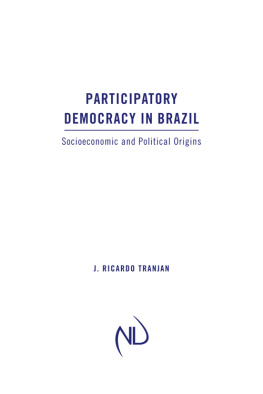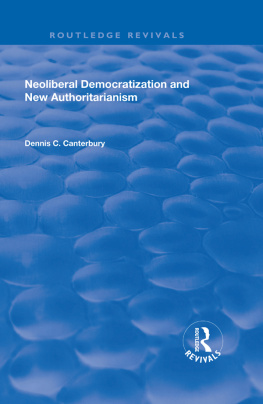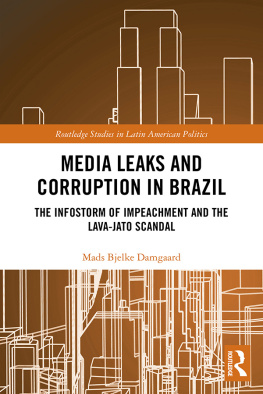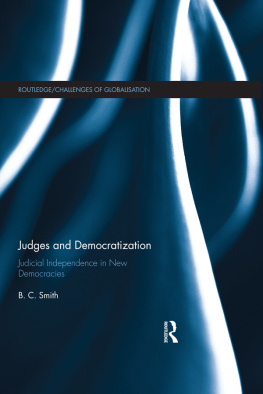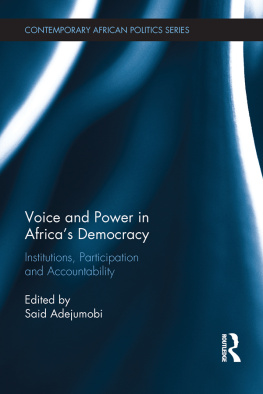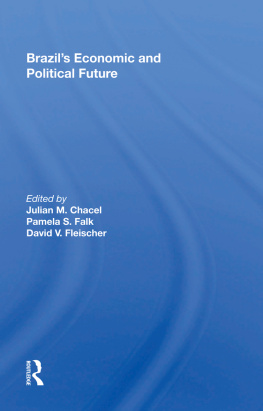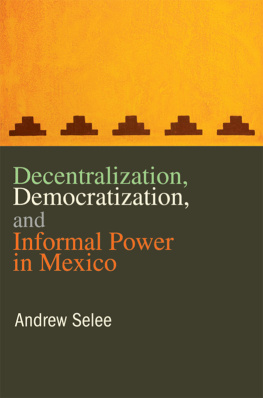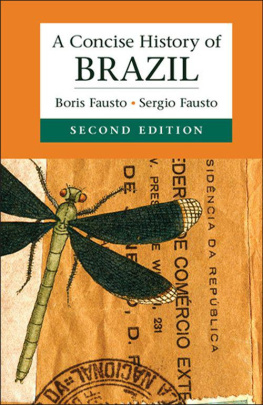Media Power and Democratization in Brazil
Routledge Advances in Internationalizing Media Studies
EDITED BY DAYA THUSSU, University of Westminster
| 1 | Media Consumption and Everyday Life in Asia
Edited by Youna Kim
|
| 2 | Internationalizing Internet Studies
Beyond Anglophone Paradigms
Edited by Gerard Goggin and Mark McLelland
|
| 3 | Iranian Media
The Paradox Modernity
Gholam Khiabany
|
| 4 | Media Globalization and the Discovery Channel Networks
Ole J. Mjos
|
| 5 | Audience Studies
A Japanese Perspective
Toshie Takahashi
|
| 6 | Global Media Ecologies
Networked Production in Film and Television
Doris Baltruschat
|
| 7 | Music, Social Media and Global Mobility
MySpace, Facebook, YouTube
Ole J. Mjs
|
| 8 | Media Power and Democratization in Brazil
TV Globo and the Dilemmas of Political Accountability
Mauro P. Porto
|
First published 2012
by Routledge
711 Third Avenue, New York, NY 10017
Simultaneously published in the UK
by Routledge
2 Park Square, Milton Park, Abingdon, Oxon OX14 4RN
Routledge is an imprint of the Taylor & Francis Group, an informa business
2012 Taylor & Francis
The right of Mauro P. Porto to be identified as author of this work has been asserted by him in accordance with sections 77 and 78 of the Copyright, Designs and Patents Act 1988.
All rights reserved. No part of this book may be reprinted or reproduced or utilised in any form or by any electronic, mechanical, or other means, now known or hereafter invented, including photocopying and recording, or in any information storage or retrieval system, without permission in writing from the publishers.
Trademark Notice: Product or corporate names may be trademarks or registered trademarks, and are used only for identification and explanation without intent to infringe.
Library of Congress Cataloging-in-Publication Data
Porto, Mauro P. (Mauro Pereira), 1963-
Media power and democratization in Brazil : TV Globo and the dilemmas of political accountability / Mauro P. Porto.
p. cm. (Routledge advances in internationalizing media studies ; 8)
Includes bibliographical references and index.
1. Rede Globo. 2. Television broadcastingPolitical aspects Brazil. 3. Television in politicsBrazil. 4. Television and politics Brazil. 5. DemocratizationBrazil. I. Title.
PN1992.92.R44P57 2012
302.23'450981dc23
2011048638
ISBN: 978-0-415-89721-1 (hbk)
ISBN: 978-0-203-11963-1 (ebk)
Typeset in Sabon
by IBT Global.
For Natalia, Nastassia and little Kaya
Contents
Figures and Tables
FIGURES
TABLES
Acknowledgments
I could not have completed this book without the generous support of many institutions and individuals. The project started when I joined the Department of Communication at Tulane University in 2004. I owe many thanks to my Department colleagues, especially former Chairs Jim Mackin (dearly missed) and Vicki Mayer, as well as current Chair Beretta Smith-Shomade. Together with other faculty, they provided institutional and personal support when I needed it most. The Department also created a challenging intellectual environment where many ideas of this book developed. At Tulane I also had the privilege of working with the Stone Center for Latin American Studies, and I am especially thankful to its Director Tom Reese. Besides exposing me to a diversity of exciting ideas and talented scholars, the Center also awarded me with a Faculty Summer Research Grant. I am also very grateful to Tulane Universitys School of Liberal Arts for a Summer Fellowship that enabled my fieldwork in Brazil. Finally, Tulane University also supported my work with a Research Enhancement Fund Grant. I owe many thanks to these and other individuals and institutions at Tulane.
A significant part of this book was written at the Centro de Investigacin y Adiestramiento Poltico Administrativo (CIAPA) in San Jos, Costa Rica. The Center awarded me a Visiting Fellowship, which allowed me to dedicate the fall of 2008 to writing in a wonderful physical and intellectual environment. I am especially thankful to CIAPAs Director, Ludovico Feoli.
Several colleagues devoted their time to reading the first versions of some of this books chapters, offering extensive and critical comments that allowed me to overcome some of my shortcomings and mistakes. I am especially thankful to Afonso de Albuquerque, Leonardo Avritzer, Fernando Azevedo, Andy Baker, Taylor Boas, Heloisa Buarque de Almeida, Carlos de la Torre, Wilson Gomes, Adrian Gurza Lavalle, Daniel Hallin, Sallie Hughes, Antonio La Pastina, Chappell Lawson, Rousiley Maia, Anthony Pereira, Enrique Peruzzotti, Aaron Schneider, Michal Schudson, Arturo Sotomayor and Silvio Waisbord. I am nevertheless the only person responsible for any of the books weaknesses.
I am grateful to all journalists, politicians, press secretaries of the presidency and civil society leaders who accepted my requests for interviews and who provided invaluable information about the linkages between television and democracy in Brazil.
I would like to acknowledge Routledge, the Reuters Institute for the Study of Journalism and Sage for permission to reprint materials originally published in the following chapter and articles:
Democratization and election news coverage in Brazil. In J. Stromback and L. Kaid (Eds.), The handbook of election news coverage around the world . New York: Routledge, 2008, pp. 252272.
The changing landscape of Brazils news media. In D. Levy and R. Nielsen (Eds.), The changing business of journalism and its impact on democracy . Oxford: Reuters Institute for the Study of Journalism, 2010, pp. 107124.
Telenovelas and Representations of National Identity in Brazil. Media, Culture and Society , Vol. 33, No. 1, 2011, pp. 5369.
My family was always extremely supportive and faced with patience the demanding journey that led to this book. My beloved wife Natalia was an amazing intellectual and emotional partner, and I will be forever grateful for her companionship. My daughter Nastassia always supported this project, hiding small notes with words of incentive when I needed them most. My daughter Kaya was born when I was finalizing this book and gave new meaning to it and to everything else.
Introduction
During more than two decades (19641985), Brazil was ruled by a military dictatorship. The countrys transition to democracy started with the election of opposition leader Tancredo Neves as president at the January 1985 meeting of the Electoral College. When choosing his cabinet of Ministers of State, Neves faced difficult negotiations with the numerous and diverse factions of his own party, the PMDB, which was the main force in the opposition to the military. He also needed to accommodate the dissidents of the dictatorship who had launched a new party, the PFL, and who had supported him in the Electoral College. To fill the position of Minister of Communications, Neves had several options. The PFL and other conservative sectors favored the appointment of Antnio Carlos Magalhes, a former leader of the dictatorships official party who shifted his support to Neves. Magalhes was also a close friend and a traditional ally of Roberto Marinho, the media mogul that owned TV Globo, the dominant network. When PMDB president Ulysses Guimares told president-elect Tancredo Neves that the party would not accept the appointment of Magalhes as Minister of Communications, Neves replied: Look, Ulysses, I can fight with the Pope, with the Catholic Church, with PMDB, with anyone, but I will not fight with Doctor (sic) Roberto [Marinho].


